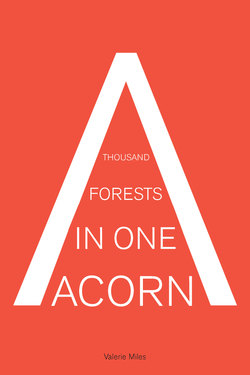Читать книгу A Thousand Forests in One Acorn - Valerie Miles - Страница 11
На сайте Литреса книга снята с продажи.
ОглавлениеTHE ACORN
THE TORTURE OF DOCTOR JOHNSON
I think of the Golden Age playwrights and the surprising formal hybridity they managed. Lope de Vega, for example (along with many others), used the tragicomedy to convey his characters’ development. I had those authors as a point of reference for this first chapter of my novel, Las primas. I explain what the family of the protagonist, Yuna, was like: what her mother did, what her cousins were like, her sister, her aunt Nené, and the art professor, whose role in the development of the story is crucial. Yuna’s mother feels a profound detachment from her family in particular because her husband abandoned her with two very strange daughters. One is a handicapped girl, Betina, who’s in a wheelchair. The other is Yuna, the narrator, who loves to paint. In this first part I tried to describe not only this girl’s talent when she attends a fine arts school in La Plata, where she wins prizes at exhibitions, but also the astuteness of the professor. Yuna has trouble speaking, and since she can hardly read or write, she expresses herself through painting. She meets a professor who values her very highly and who tells her they’re going to show her work first in Buenos Aires and then in Europe. He tells her they’re going to travel and she jumps on the professor to kiss him and they fall over together. “No, Yuna, that’s not done. Because men are fire and women straw and the devil comes along and blows.”
IN CONVERSATION WITH THE DEAD
I feel very close to Dostoyevsky, who for me is the greatest writer ever, especially in The Idiot. And also Pasternak, whose work I enjoy immensely, and Joyce, whose Ulysses I’ve read so many times. Incredible that everything takes place in one day. We’re so dynamic, so full of internal monologues. And I can’t forget Alberto Ponce de León; I often revisit his book, Tiempo de muchachas. I’ve also translated Villon, Rimbaud, the Comte de Lautréamont, and in Sicily I struck up a friendship with Quasimodo. Those are my literary dead. With respect to the others, to the dead in my family, the figure of my grandfather, Giovanni Battista, is very important. He was a wise man. He came to Argentina from Sicily, fleeing Garibaldi; he didn’t want a united Italy. He was a person who never rested and who read a lot, especially Dante, Virgil, Petrarch. He would tell me: “If you ever write a sonnet, write it like Petrarch or don’t bother.” He arrived in 1860, started a family, and, on top of that, gave us the nostalgia that all children of immigrants share.
CODA
Before leaving for Paris, you received a prize from Borges’s own hands, and later, when you were eighty-five, you won another award from young Argentine writers who considered you one of their own. Narratively, Paris was like an intermezzo between Buenos Aires and Buenos Aires.
I began writing here but I love Paris very much. It was the happiest time of my life, amazing to be in Paris at the height of existentialism. I entered university in 1942 and ended up with a doctorate in Philosophy and Education. Afterward, with the Revolución Libertadora in ’55, I had to leave, and in Paris I specialized in psychology. The French authorities were good enough to give me citizenship and I was able to work. Nothing like what happened to me in Argentina after the fall of Perón, where I was attacked over and over. But no one remembers that and no one talks about it. Because people who went to war don’t talk, the ones who talk are inventing, because if someone told what actually happened no one would think it was possible. But I went to Paris and that influenced me because I was with the greatest writers. I was with poets like Quasimodo, I took courses with Jean-Paul Sartre and Simone de Beauvoir, I was very close friends with Violette Leduc. We had such beautiful experiences, the nights we’d get together in the Latin Quarter. And now, here, the “youth” prize for Las primas opened the door to many opportunities, the novel has been adapted for the theater several times and has been translated into many languages.
